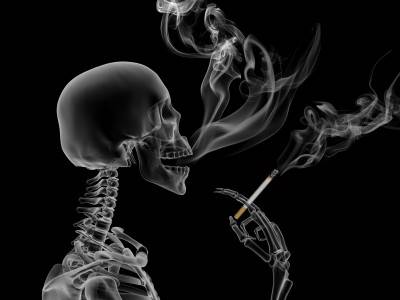 Photo Credit--Dimitar Marinov 123rf
Photo Credit--Dimitar Marinov 123rf
I will be posting a blog in the coming weeks that summarizes the results of a new health survey with imbedded questions related to addiction recovery. The results will underscore once again the role nicotine addiction plays in the compromised health of people in recovery from other addictions. As a prelude to that forthcoming blog, I want to remind readers of 12 facts related to smoking and addiction recovery.
- Tobacco use accounts for more sickness and disease than the combined use of alcohol and other drugs.
- Combining nicotine addiction with another drug addiction amplifies the health risks of both addictions.
- Between 70-80% of people entering addiction treatment smoke--nearly 4 times the rate for all adults.
- Between 44-80% of patients admitted to addiction treatment have a desire to stop smoking.
- People treated for alcohol or drug dependence are more likely to subsequently die from smoking-related diseases than from alcohol or drugs other than nicotine.
- Leading figures within the American history of addiction recovery have died of smoking-related diseases, including Bill Wilson, Dr. Robert Holbrook Smith, Mrs. Marty Mann, Danny C., Jimmy K., Charles Dederich, Dr. Marie Nyswander and Senator Harold Hughes.
- Continued smoking among those seeking to initiate or maintain recovery is a risk factor for resumption of alcohol and other drug use.
- Smoking cessation improves recovery rates of other addiction; rates of smoking cessation rise with length of abstinence from alcohol and other drugs.
- A growing number of addiction counselors are refusing to model a behavior (smoking) that could take years from their own lives and the lives of those who could be influenced by their example.
- Some people in recovery are choosing to change their sobriety/clean dates to reflect the date they stopped all addictive drug use--including nicotine use.
- Addiction professionals are broadening their understanding of "recovery" to encompass smoking cessation.
- The health benefits of smoking cessation for people in recovery include increased life expectancy, reduced risk of heart disease, heart attacks, strokes, and cancer, as well as a more rapid process of brain recovery from addiction.
If you would like the research citations supporting the above propositions and learn other facts about smoking and addiction recovery, see the following articles:
Hilton, T. & White, W. (2013). Why does the addiction treatment field continue to tolerate smoking instead of treating it Counselor, 14(3), 34-37. (to be posted soon)
Knudsen, H.K. & White, W.L. (2012) Smoking cessation services in addiction treatment: Challenges for organizations and the counseling workforce. Counselor, 13(1), 10-14.
White, W. (2012). Smoking cessation within a recovery community:An interview with Hossein Dezhakam, Congress60, Iran.
White, W. (2011). Smoking and addiction recovery. For people in recovery.
White W. (2011). Smoking and addiction recovery: For addiction treatment professionals and administrators.
White, W. (2008) Alcohol, tobacco and drug use by addiction professionals: Historical reflections and suggested guidelines, Alcoholism Treatment Quarterly. 26(4), 500-535.
People in recovery are dying from smoking-related diseases in large numbers, but they are also dying from conceptual blindness: the failure to see the contradiction between claiming recovery status in the presence of continued addiction to nicotine. Too many recoveries and too many lives are going up in smoke.